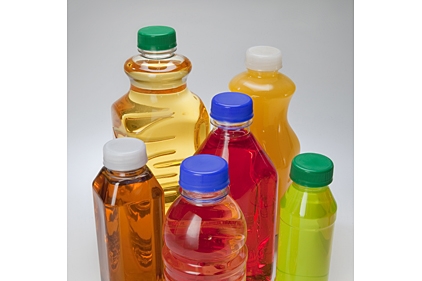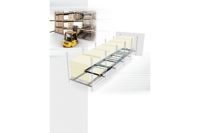Portola Packaging, Inc.’s North American facilities reduced energy usage by almost 30% and recycled approximately 9 million pounds of material over the past three years.
The Naperville, Ill., manufacturer of caps and closures reported a 9% reduction in kilowatt hour usage in 2012, in addition to 8% reduction in 2011 and a 10.5% decrease in 2010, compared to the years prior. In addition to energy reduction, Portola plants recycled in excess of 3.4 million pounds of scrap resin in 2012, along with corrugated, paper, aluminum and steel.
“Ultimately, our objective is to create upstream processes, which utilize material in the most efficient way possible. By doing so, there is less need to recycle on the back end. We also believe in partnering with our customers and communities to help make that happen,” says Kevin Kwilinski, president and CEO.
Contributing to the energy conservation efforts were more than 20 different initiatives across all eight North American plants. These included concerted efforts to locate and reduce heat and air losses, corrugated case redesign to maximize cube footprint, installing higher efficiency compressors and decommissioning equipment with less-than-desirable output.
In 2012, production footprints that were found to be inefficient from a material delivery or energy utilization perspective were modified. Production from older, lower-efficiency equipment was moved to newer, higher-cavitation machines. Modification of some shift schedules also helped reduce energy utilization and improved efficiency.
Portola’s material recycling efforts also extended to hydraulic oil waste, scrap metal, aluminum cans, office paper, etc. The company continues to work with customers on an individual basis to convert shipments from corrugated boxes to Gaylords, which enables 30-35% more closures to be shipped per truckload and significantly reduces fuel and packaging material costs.
In addition to deploying production and process assets to reduce the environmental footprint, Portola is also factoring source-reduction initiatives into its closure development. For example, last fall, the company launched its GreenLyte one-piece, high-density polyethylene 38mm plug closure for hot-fill beverage products. GreenLyte represents a cost-effective, performance-driven alternative to traditional two-piece (closure plus liner) polypropylene types typically used for juices, ready-to-drink teas, isotonics, enhanced waters, low-acid nutraceuticals and high-end, aseptic-filled beverage products.
“At Portola, we believe that good environmental stewardship is an ongoing process. As such, we have engaged all of our employees in the process to reuse, reduce and recycle. We encourage all of our team members to generate new environmentally-sound ideas so that we can continue on this path,” Kwilinski says.
Four U.S. facilities, plus three Canadian plants and one in Mexico participated in the 2012 initiatives. In addition to Portola’s North American operations, the company’s three international manufacturing plants (U.K., Czech Republic and Russia) are also working on a parallel environmental stewardship path.


